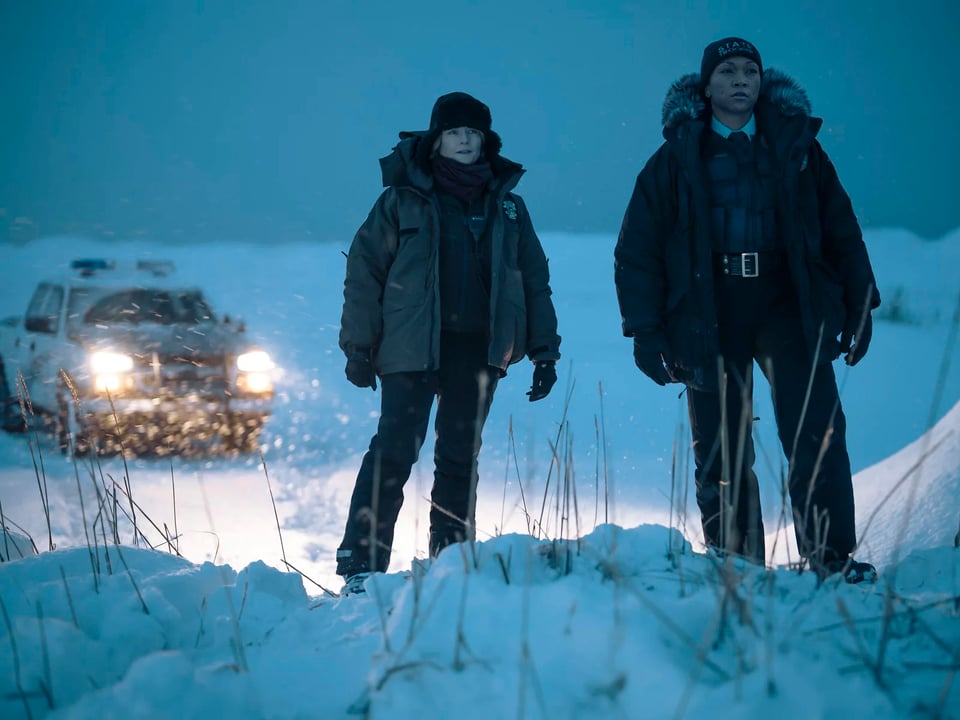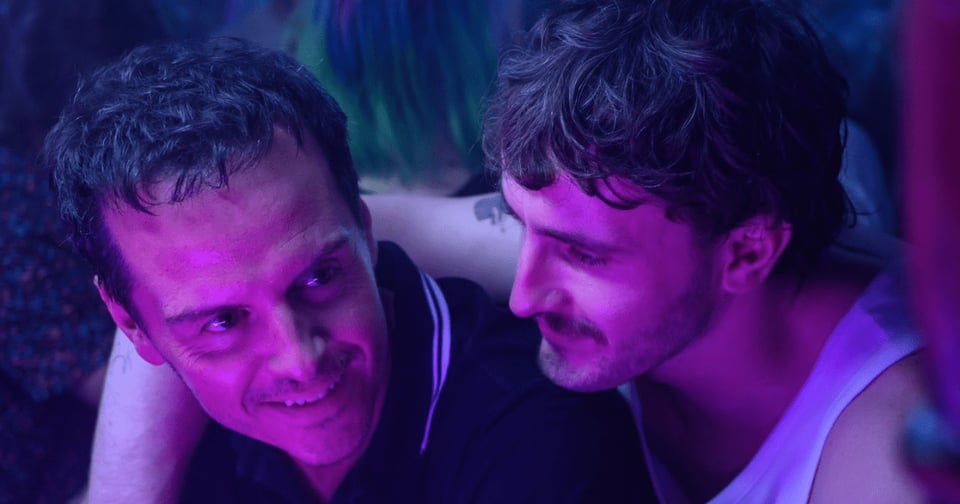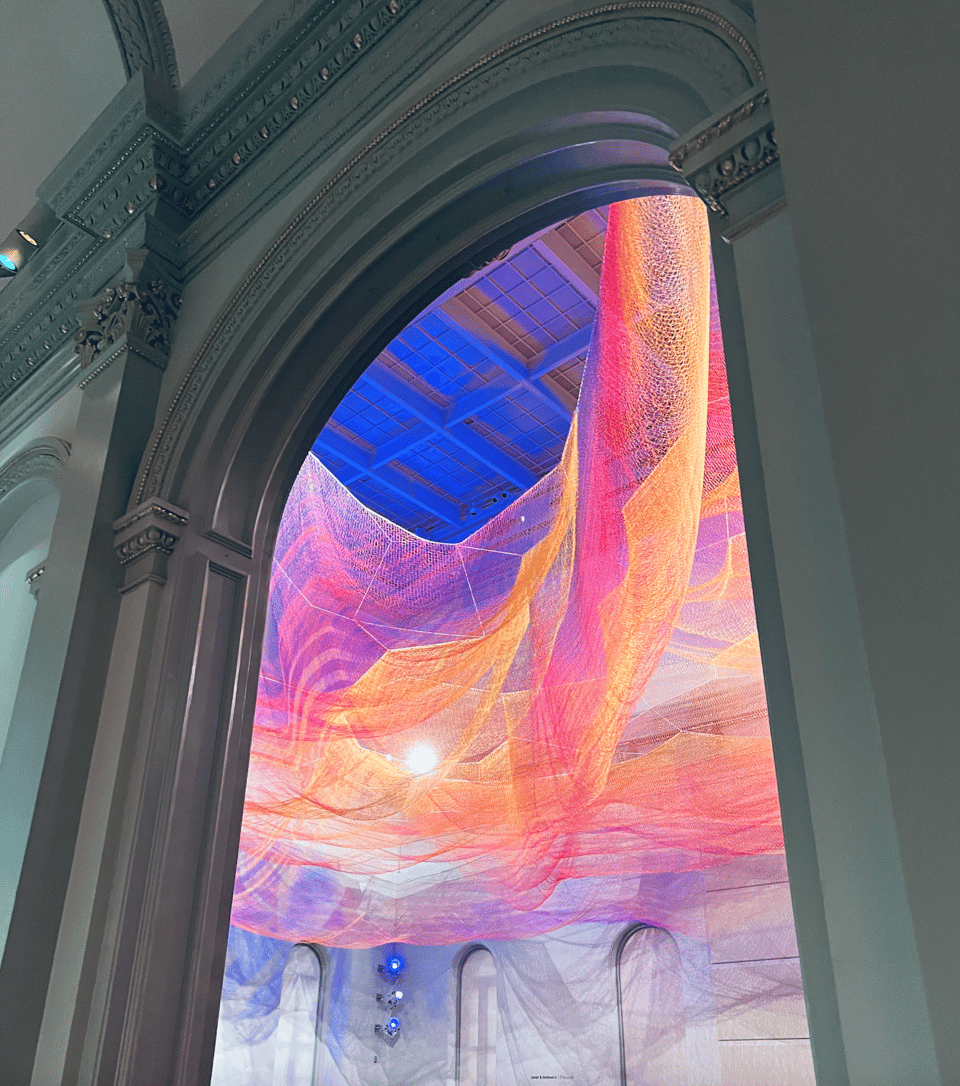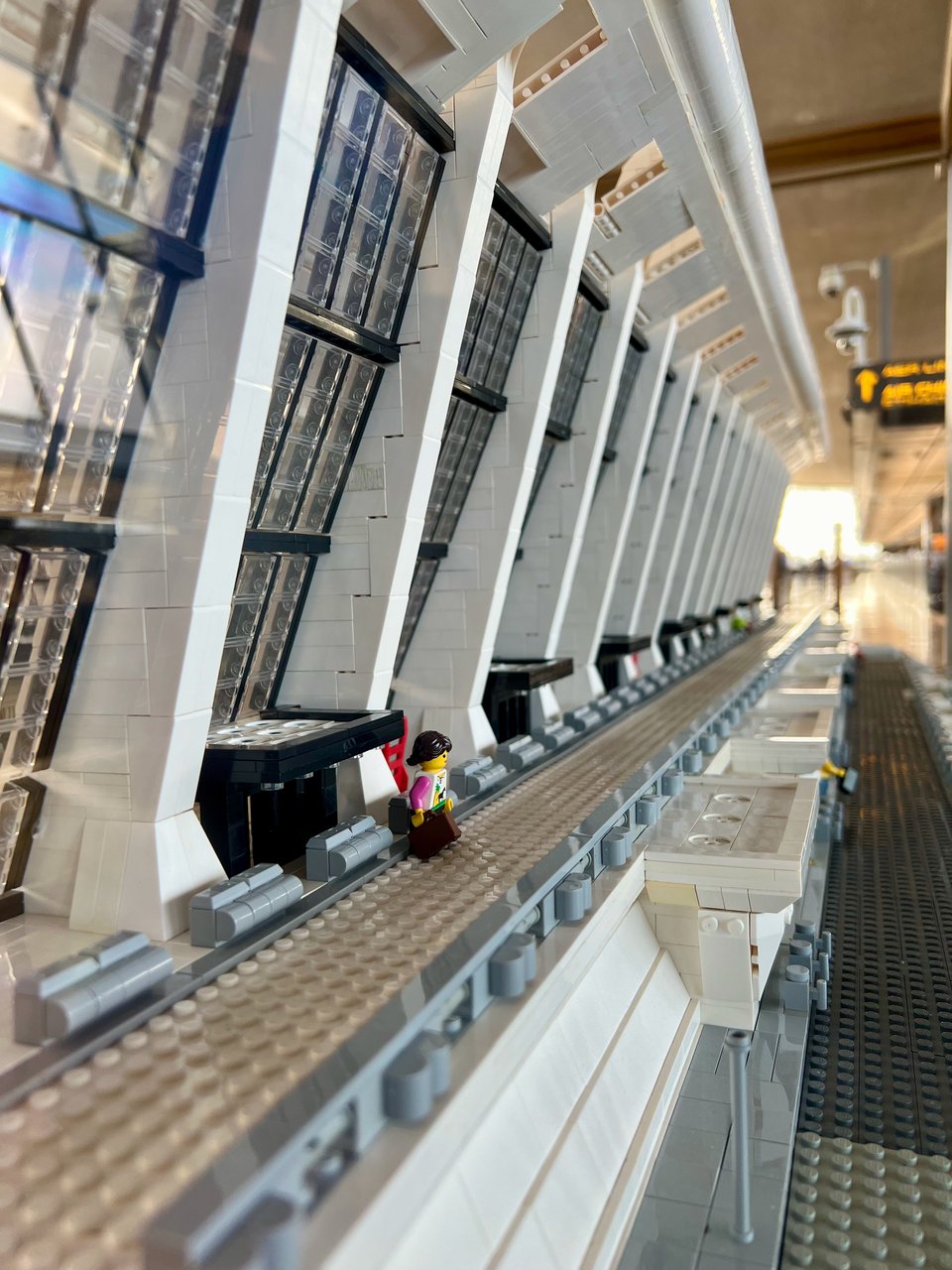I just can't get you out of my head 🧠

🌎 The Big Topic: Do you have an inner monologue?
One warm summer day, I was in Dresden's train station frantically trying to buy a ticket from the automated kiosk. Filtered sunlight bathed the station's main hall, the result of the building's 2006 restoration by Norman Foster, an architect better known for the glass dome atop the Reichstag and the wavy glass ceilings covering DC's National Portrait Gallery and London's British Museum.
The kiosk of my frustration stood in the center of the symmetrical main hall. I couldn't comprehend anything on the screen, but not because it was in German. I realized I couldn't read because you can't read in your dreams. I blithely boarded the train without a ticket, fully aware there are no consequences in dreams.
I've used similar realizations to defuse difficult situations in other dreams, ignoring dangers, diving off buildings, and jumping through the sky because I know gravity doesn't matter in dreamland. My lucid dreams range from mundane to thrilling when they occur every few weeks, but such dreams are not universal: one meta-study found only half of people have lucid dreams.
Another psychological phenomenon that is neither consistent nor universal is the inner monologue, when your own thoughts manifest themselves in your mind as language ranging from words to sentence fragments to complete sentences. I occasionally think with an inner monologue ranging from isolated words to full sentences. For one British woman, her inner monologue is a dialog between a squabbling Italian couple.
Last weekend I was people-watching from a bench in Logan Circle and thought in my head, "That hat is very purple," and, "Dog is having the time of his life." I observed a scene in the bronze relief below the statue, noticed a detail, and thought, "Map."
One psychology professor estimates that only 30-50% of people have an inner monologue, making it a relatively uncommon mode of thinking.
Both the inner monologue and lucid dreaming have helped me see TV and movies in a new way lately. I now try interpreting the supernatural as manifestations of the characters' inner monologues that they are consciously or subconsciously controlling like lucid dreams.
When a character sees a ghost or hears a mysterious voice, I try thinking of it as the character's own creation, like a lucid dream or inner monologue, not some exogenous supernatural force. What, I ask myself, does this tell us about the character and why is this important?
I tried this method with the new season of True Detective: North Country and last year's film All of Us Strangers.
📺 The Screen

🎞 True Detective (Max). I finished the fourth season of this Bechdel Test-passing police procedural set in the fictional town of Ennis, Alaska. It stars Jodie Foster and Kali Reis as small-town police officers suffering the pain of their own personal losses while investigating a mysterious mass-death of arctic researchers.
I never watched the True Detective series before and I only started watching it after I read it was filmed mostly in Iceland, with a few shots in Alaska. The cynic in me assumes any show set in Alaska is actually filmed in British Columbia to take advantage of generous federal and provincial tax subsidies. This was not the case here and I'm not even sure B.C. could produce the frosty and blustery blizzard scenes.
The usual clues I see that give away filming locations are the cars, roadway signs and markings, electrical plugs, exit signs, etc. It turns out an old American military base in Keflavík, Iceland, provided some of the faux-American setting for filming.
Wintertime Iceland in its endless darkness serves as a stunning backdrop to the police investigation, which is the season's ostensible but less compelling story line. In fact what I found more compelling was how the two detectives experience the supernatural in how they process and show us their grief.

🎞 All of Us Strangers (Hulu). This deeply sad movie by British director Andrew Haigh stars Andrew Scott, Paul Mescal, Jamie Bell, and Claire Foy and that's basically the entirety of the cast. In fact, loneliness is a theme that emerges from the very beginning, where it seems as though London has been entirely depopulated.
Scott's character is a gay writer who imagines conversations he would have with his parents, who died in his childhood. He further develops a romantic relationship with a neighbor whom he initially pushes away.
Two things resonated with me: the difficulty of saying things to your parents that you've been meaning to say for a long time and the reflexive rejection of affection.
As with True Detective, the concepts of lucid dreaming and the inner monologue helped me unpack and reveal the characters' pain.
🕺 Wandering in Washington
My next issue will likely feature photos of the Tidal Basin's 🌸 cherry blossoms, 🌸 which are expected to bloom in a few days. Later this year the National Park Service will have to remove 140 cherry trees to raise and fortify the Tidal Basin's sinking sea wall.
Meanwhile, check out my latest wanderings around town:







🔗 Assorted Links
- 📝 The true story of Mattel's accidentally super gay Ken doll. The mesh-clad, earring-wearing Ken doll that stood on store shelves for just a few months in 1993 was resurrected for a cameo in the Barbie move. (Yahoo)
- 📝 Meet the Delaware judge who keeps foiling Elon Musk. The consistency of Delaware's court system (especially its bench versus jury trials) is a big reason companies choose to incorporate there. (Washington Post)
- 📝 Hold me closer, tiny rambler. Thanks to soaring housing prices, the era of the 400-square-foot subdivision house is upon us. (New York Times)
- 📝 Wendy’s surge pricing should’ve been framed as discount pricing Bars and restaurants already charge surge pricing outside happy hour, but thanks to loss aversion cognitive bias, nobody gets mad. (Washington Post)
- 📝 What ‘Luxury Beliefs’ Reveal About the Ruling Class. An orphan’s unlikely journey from foster care to Yale, and its lessons for the upper crust. (The Atlantic)
- 📝 Auto Insurance Spike Hampers the Inflation Fight Costlier vehicles and repairs are pushing premiums higher even as the increase in U.S. consumer prices is tapering overall. (New York Times)
- 📝 Why car insurance in America is actually too cheap. Most drivers still have paltry coverage, pushing crash costs onto health insurers, governments, drivers, and victims. (The Economist)
📊 The Numbers
... of Americans share a news story on social media in an average week, down from 29% in 2017.
- 📝 Source: Overview and key findings of the 2023 Digital News Report (Reuters Institute for the Study of Journalism)
- 📝 Cited in: As Facebook turns 20, politics is out; impersonal video feeds are in. Social media platforms are downplaying news and current affairs content; users are posting less of it. (The Economist)
... of survey respondents would prefer to live in a world without TikTok and Instagram.
- 📝 Source: When Product Markets Become Collective Traps: The Case of Social Media (University of Chicago)
- 📝 Cited in: The Terrible Costs of a Phone-Based Childhood: For a little over a decade, we have been raising children in an environment that is hostile to human development. (The Atlantic)
... of the House of Representatives voted to ban TikTok.
🎬 The Wrap
I've long feared being dependent on other people— to a fault, I admit. That's why I'm sharing this passage in which a blind journalist describes coming to grips with relying on others.
Flying on my own has become a trial. I dare you to find your suitcase on a baggage-claim carousel blindfolded. But I can’t bring myself to request assistance from the airline. I still assume I’ll figure it out along the way. My wife, worried I won’t, contacts airlines for me.
She’s right. I’ve been thinking about this the wrong way, insisting on a faulty mental construct—the myth, that is, that we should all be independent. None of us is, really. We rely on one another all day long, in all kinds of ways—parents taking turns driving their kids to soccer practice, a daughter escorting her elderly mother to the doctor, office workers contributing to a team project. So I need help finding a Dunkin’ Donuts [entrance in Manhattan]. What’s the big deal?
Unrelated, I liked his warning against faddish terminology prevailing over meaningful change:
Tweaking language is a start, but barely one, and not always helpful anyway. I’ve recently noted public toilets labeled for the “differently abled” rather than the “disabled.” That’s adorable and well intentioned. But it’s also wrong. I’m not able to do things “differently” from others; I lack capabilities, and this makes me unable to perform certain tasks. I have to worry about accidentally peeing on my shoe; most people don’t. More helpful than switching the signage would be to brighten the lights in these typically dimly lit spaces and stop hiding the soap behind stylish mirrors.